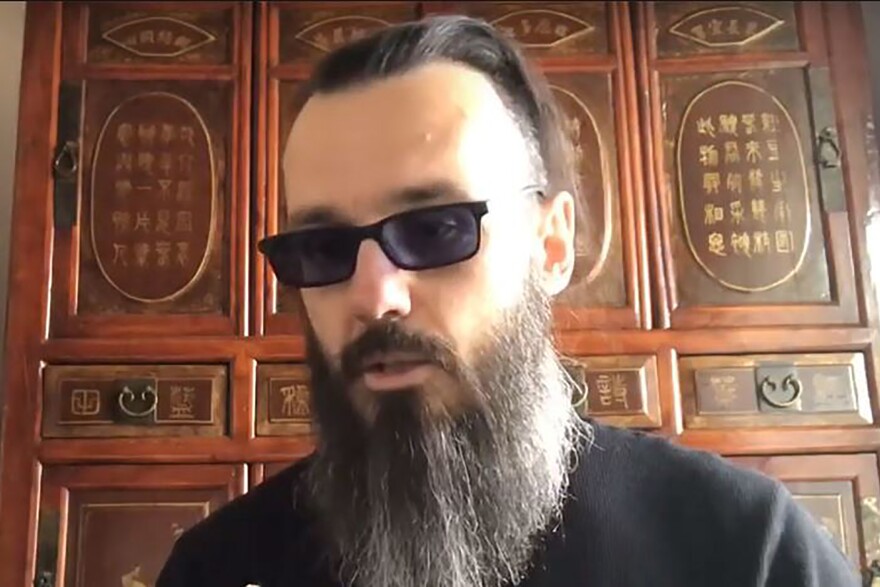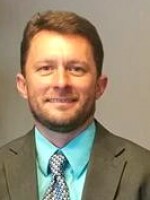A deadly E. coli outbreak at several Jack in the Box fast food restaurants in the western United States in 1993 may provide the means to solve one of the most controversial criminal cases in Arkansas history. Dr. Bruce Bradley, a scientist, was so bothered by the outbreak that killed four children and sickened hundreds of others that he created a system called the M-Vac to analyze food to detect pathogens.
There was only one problem – it worked too well, his son and M-Vac President Jared Bradley told Talk Business & Politics. The system may not have been a fit for the food industry, but according to the FBI, it’s been a revelation when it comes to solving unsolved crimes.
M-Vac is now primarily used to collect DNA in criminal cases. A man who pleaded to an Alford Plea in the murders of three eight-year-old boys in West Memphis, Damien Echols, has petitioned the state of Arkansas to use M-Vac testing on the ligatures collected in the case.
A hearing to determine if the advanced DNA testing will be done is slated for Thursday (June 23) in West Memphis. Prosecutors have fought the advanced DNA testing, and Bradley said he was puzzled by the motions filed.
Echols, along with his legal cohorts, Jason Baldwin and Jessie Miskelley Jr., entered into Alford pleas Aug. 19, 2011, in connection with the deaths of three, 8-year-old boys from West Memphis – Stevie Branch, Christopher Byers and Michael Moore. The plea is a rarely used legal maneuver in which a defendant professes innocence while acknowledging the state may have enough evidence to charge them.
The three men, known as The West Memphis Three, had been originally convicted of the murders after the boys were found in a rain-soaked ditch in West Memphis one day after they were reported missing while riding bikes in their neighborhood on May 5, 1993. The men spent 18 years in prison and have steadfastly maintained their innocence.
Echols asked prosecutors to test the ligatures two years ago, and at first the state seemed ready to allow the testing to move forward. But after Prosecutor Scott Ellington was elected to a judge post, newly appointed Prosecuting Attorney Keith Crestman told Talk Business & Politics in April 2021 he would seek a judge’s order to destroy the evidence.
Soon after, prosecutors claimed the evidence had been lost or destroyed in a fire, but these claims proved untrue when in December 2021 the evidence was found intact inside the West Memphis Police Department’s evidence locker room. Why it was claimed that the evidence was destroyed or lost has never been explained.
Repeated attempts by Talk Business & Politics to get a comment from Crestman have gone unanswered.
Crestman then filed a petition claiming that M-Vac testing might alter the evidence in some way and that it could impugn future efforts to exonerate the other two defendants in the case, Baldwin and Misskelley. How it could impugn exoneration attempts by Baldwin and Misskelley was not explained, per the motion. Crestman also claimed in the motion that M-Vac had only been used in a handful of cases and there wasn’t enough information about its reliability.
Bradley said when he read the prosecutor’s motion he was astonished.
“I don’t think he understands how it works … the FBI data alone contradicts what he said … it’s not going to damage the DNA. It will not alter the evidence. Everybody should be focused on finding the truth,” Bradley said.
Swabbing with a cotton tip has been the gold standard for collecting DNA in criminal cases for many years, according to the FBI. The agency conducted an extensive research probe into M-Vac testing and found in 2020 that it’s on average 12 times more accurate than swabbing and it recommends using the method if it’s available.
M-Vac uses a wet vacuum system. An item is ‘vacuumed” and the material collected is placed into a solution. The solution is removed and all the material, including any DNA, is collected by a filter that is then transferred to a lab for analysis.
“Imagine if you spilled a glass of wine on the carpet. Would you use a broom or a wet vacuum to clean it up?” he said.
The system has been used by more than 200 private and public labs around the country, and it has been used to test up to 15,000 or more pieces of evidence, Bradley said.
One problem with swabbing in older, unsolved cold cases is that less DNA is often present and it might be in a crevice that the swab can’t reach, Bradley said. The M-Vac system can retrieve genetic material from rough or porous surfaces that swabbing can’t.
One example of when M-Vac outperformed swabbing was the Krystal Beslanowitch case.
The 17-year-old was found naked and bludgeoned to death Dec. 15, 1995, next to the Provo River, about 40 miles from Salt Lake City, Utah. Investigators collected river rocks at the scene and believed these rocks were used in the murder.
The rocks were swabbed and nothing was found. The rocks remained in an evidence locker room for 18 years. In 2013, they were subjected to M-Vac testing. To get a DNA profile about half a nanogram of genetic material has to be recovered.
How much did M-Vac get from the rocks?
“21. It retrieved 21 nanograms,” Bradley said. “It retrieved 42 times more than swabbing. Everyone was blown away.”
Her killer, Joseph Simpson was charged and convicted of her murder two decades after her death.
How well it might work in the West Memphis Three case is uncertain, Bradley said. The boys’ bodies spent many hours in water, and water does degrade DNA. One thing about the ligatures is that they have a rough, porous surface and many skin cells from the killer or killers could have been captured.
The only way to know for sure is to test, he added.
Bradley’s father spent years perfecting the system. When it came to food pathogen analysis, the system was too sensitive, he said.
His father still attempted to market it in the food industry, and in the mid-2000’s his son left the military and joined the company he’d formed. One day Jared was chatting with a friend who worked in the FBI and he mentioned the M-Vac system. The friend quipped that he wished he had something similar to help collect evidence in criminal cases.
Jared got an idea and took the system to a private lab in Salt Lake City. Scientists and lab techs were surprised by how much material was retrieved by the system, he said.
One unfortunate part of M-Vac’s story is that its creator, Dr. Bruce Bradley, never got to see his invention’s best application. He got a brain tumor and died before M-Vac was used by criminal labs.
“God knew he could take it to the next level,” Bradley said. “My dad was motivated by protecting our resources … he was really bothered by the thought of those little kids dying and he wanted to help prevent something like that from happening again. He spent a lot of his life designing M-Vac and he thought if he could save at least one child from E-coli it would have been worth it.”
One aspect of the West Memphis Three case is the lack of attention the three murder victims receive, Bradley said. The boys were murdered and whoever killed them needs to be exposed by any means possible, he added.
“There are three little boys who never got justice,” he said.
Copy for this story was written by George Jared who has been reporting on legal developments in this case for about two decades. He was interviewed by KUAR's Michael Hibblen in advance of the court hearing.







